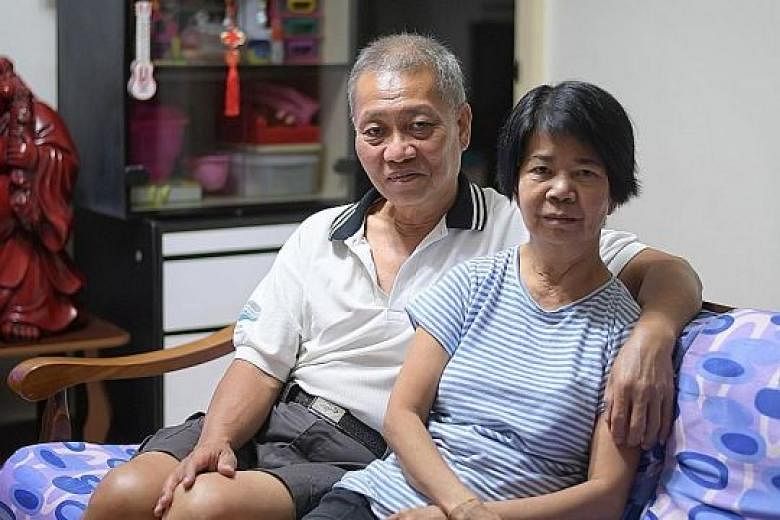When Madam Liau Cheok Huey was suffering from chronic kidney disease and had to go on dialysis, she initially rejected her husband's offer of his kidney.
The 58-year-old housewife feared that donating a kidney would affect his health and that Mr Teo Eng Hong, 59, might not be able to continue in his job as a storekeeper.
But after four years of dialysis, she relented after learning that kidney donors continue to lead healthy lives after transplants.
Mr Teo said: "I saw her suffering, and I wanted to help her shoulder her pain."
In 2009, the Teos underwent the kidney transplant, and Mr Teo became the first beneficiary of the National Kidney Foundation's (NKF) Kidney Live Donor Support Fund.
But almost a decade after the fund was started, the NKF is reviewing it to get more people to donate their kidneys.
Since the $10 million fund was launched in 2009, only $330,000 has been disbursed to 33 patients. The donors, ranging in age from their 20s to their 60s, gave their kidneys to a loved one, such as a spouse, child or sibling.
The fund allows needy donors to be reimbursed for transplant-related expenses to encourage more people to donate their kidneys when they are alive.
It covers annual health screenings, medical follow-ups and hospitalisation premiums, and also pays the insurance premiums for a policy that covers death, disability and critical illness, among other things.
Mr Teo said he does not have to worry about these expenses thanks to the fund. The couple have no children, and he said the transplant has not affected his health.
An NKF spokesman said: "We totally understand that donating one's kidney is a difficult decision. (With this fund), donors can be assured that many of the post-transplant-related medical charges will be taken care of by us."
The NKF plans to start equipping its nurses with knowledge about kidney transplants so that they can better communicate and reach out to patients about the matter.
The NKF is also reviewing whether the funding covers enough of the donors' needs.
While the number of people diagnosed with end-stage renal disease is growing, the number of kidney donations has not shown any steady increase in the past decade, even after amendments to the Human Organ Transplant Act to enlarge the donor pool.
The changes include allowing living donors to be reimbursed for expenses related to the transplant.
Between 2007 and 2016, there was an annual average of 35 kidney transplants from dead donors and 34 from living donors.
Professor A. Vathsala, co-director of the National University Centre for Organ Transplantation at the National University Hospital, said many patients are reluctant to even ask their family members to donate a kidney as they are afraid that their loved ones will be harmed by the transplant.
In fact, nearly half of the more than 1,100 patients polled in a study here did not want to ask their loved ones. Almost one in four had no one to ask, or asked but were rejected, she said.
She added: "Some are afraid to ask their loved ones in case their loved ones say no. They often tell us, if their relative had wanted to donate, they would have come forward on their own."
Theresa Tan

